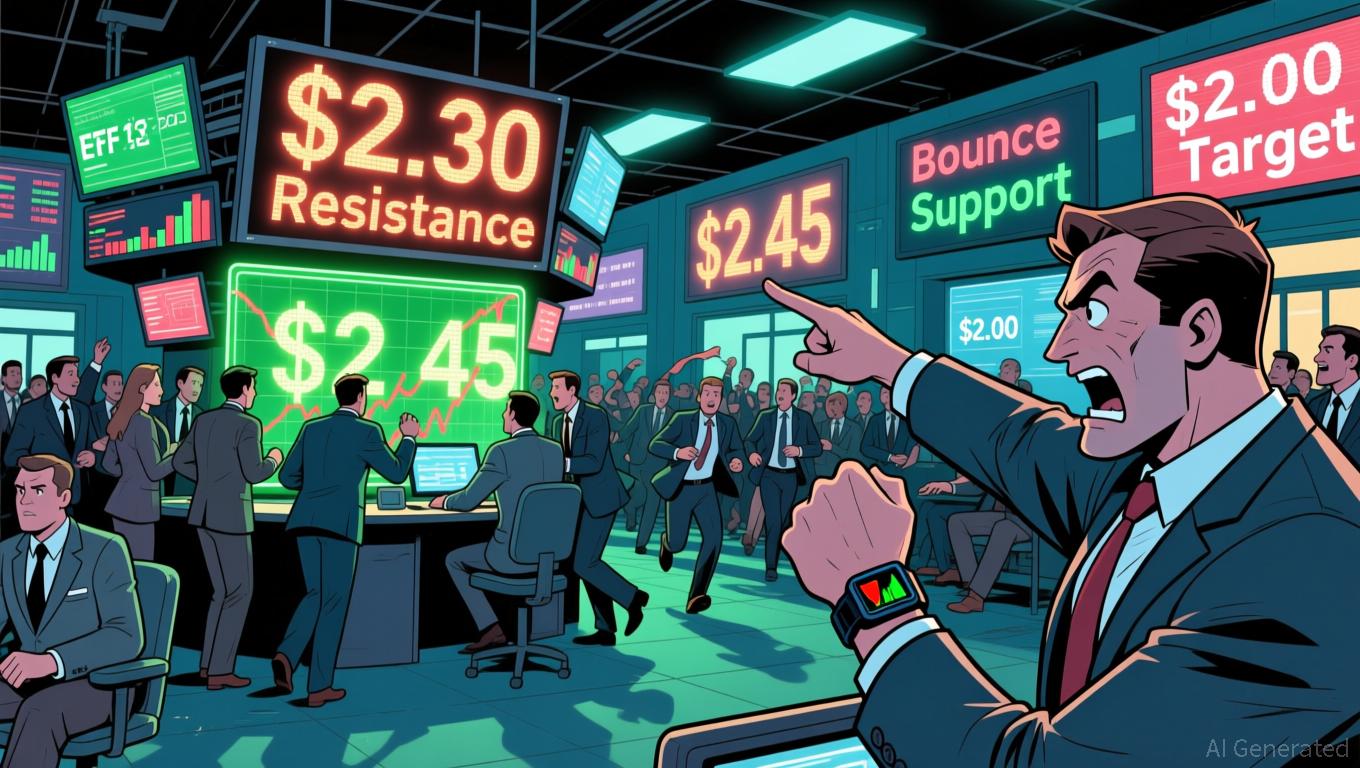The Growth of Social Impact Investing: Insights from Public Interest Legal Research and New Developments in Emerging Markets
- Legal professionals are reshaping ESG investing through policy advocacy and litigation, balancing fiduciary duties with sustainability goals in markets like the U.S. and EU. - Emerging markets like Morocco and China adopt tailored ESG frameworks, driven by regulatory mandates and legal scholarship emphasizing transparency and accountability. - Anti-ESG political pushback and greenwashing risks persist, but tools like the Sustainability ROI Workbook demonstrate ESG's financial benefits and investor demand
Legal Professionals Driving ESG Policy Change
Legal experts play a crucial role in guiding investors through the intricate regulatory and legal challenges related to ESG investing. In the U.S., the Department of Labor’s 2023 ESG Rule, which allowed retirement plans to consider ESG factors beyond financial returns, was quickly met with lawsuits. Courts determined that fiduciaries could be held responsible if they prioritized ESG factors that did not directly benefit financial returns, suggesting such choices could negatively affect investment outcomes
On the state level, attorneys have provided guidance on laws that either encourage or limit ESG considerations. For instance, Wyoming enacted rules restricting the use of ESG criteria in shareholder voting, while California

Within the European Union, lawyers have played a vital part in helping organizations comply with rigorous ESG reporting obligations, including the Corporate Sustainability Reporting Directive (CSRD) and the Corporate Sustainability Due Diligence Directive (CSDDD). These rules
ESG Integration in Emerging Markets
Developing economies have experienced rapid growth in ESG investment structures, spurred by new regulations and investor interest. Morocco, for example, has set ESG reporting standards for banks and major public companies, providing fertile ground for research on sustainability disclosures
China’s 2024 ESG reporting standards, introduced by the China Securities Regulatory Commission (CSRC) and the Ministry of Finance (MOF), mark a significant development. These standards
Legal research in emerging economies goes beyond just regulation. In South Korea, Hansol Paper has embedded ESG values into its business to tackle supply chain issues, showing how legal and policy measures can encourage sustainable innovation
Obstacles and Prospects in the ESG Sector
Although there has been significant advancement, obstacles remain. In the U.S., opposition to ESG, often driven by political and ideological disputes, has resulted in laws aiming to limit ESG factors in investment choices
Nevertheless, the rationale for ESG investment continues to grow stronger. Legal teams have developed resources like the Sustainability ROI Workbook to show how ESG initiatives can cut costs and boost profits
Conclusion: Looking Ahead for ESG Investment
The impact of mission-driven legal careers and policy evolution on ESG investment is clear. Legal professionals are not only managing regulatory complexities but also helping to define the ethical and financial limits of sustainable investing. In developing economies, public interest legal research has played a crucial role in building ESG reporting systems, ensuring that sustainability is woven into corporate governance and investment planning.
For investors, the message is unmistakable: ESG has moved beyond being a niche concern to become a fundamental shift in global finance. As legal and regulatory frameworks continue to change, successfully aligning investments with social and environmental objectives will rely on ongoing cooperation among legal experts, policymakers, and market players. The future of ESG investment will be shaped by openness, responsibility, and the thoughtful application of purpose-driven values in all aspects of capital deployment.
Disclaimer: The content of this article solely reflects the author's opinion and does not represent the platform in any capacity. This article is not intended to serve as a reference for making investment decisions.
You may also like
Ethereum News Update: Ethereum Faces $2,500 Threshold—Beginning of a Supercycle or Start of a Major Sell-Off?
- Tom Lee predicts Ethereum's $2,500 support level could trigger a buying frenzy, framing it as a structural inflection point after systematic liquidation. - BitMine's 3.63M ETH holdings and recent $20M WorldCoin investment signal institutional confidence in Ethereum's long-term tokenization potential. - While Dencun upgrades and staking yields bolster fundamentals, macro risks and $1,500 downside remain concerns amid volatile $2,900-$3,115 near-term price action.
Bitcoin Updates: Blockrise's Bitcoin Lending Reflects Growing Institutional Confidence in Regulated Digital Asset Finance
- Blockrise, a Dutch Bitcoin-only firm, launched €20,000 crypto-backed loans after securing EU MiCA regulatory approval, enabling cross-border EU operations. - The service targets corporate clients, allowing Bitcoin collateralization while retaining asset ownership, with 8% interest rates adjusted monthly. - Its semi-custodial model uses hardware-secured vaults and joint transaction authorization, managing €100M in client assets under this structure. - The move aligns with rising institutional demand for B

XRP News Today: XRP's Role in International Transactions Strengthens as ETFs Spark Institutional Movement
- XRP's price nears $2.30 threshold amid ETF-driven institutional interest, with Canary Capital's XRPC ETF attracting $13M net inflows despite broader crypto outflows. - Technical analysis highlights fragile support at $2.03 and critical resistance at $2.45, with breakdowns risking a slide to $1.50 while breakouts could trigger bullish momentum. - XRP's real-world utility gains traction via SWIFT GPI integration, demonstrating cross-border payment efficiency that differentiates it from speculative altcoins

Bitcoin Updates: Tether Faces Scrutiny Over Stability—S&P Issues Caution While Crypto Community Responds
- S&P Global Ratings downgraded Tether's USDT to "weak," citing high-risk Bitcoin exposure and reserve transparency concerns. - Tether criticized the rating as "misleading," defending its 1:1 dollar peg and $135B Treasury holdings as evidence of stability. - The downgrade highlights regulatory tensions as USDT faces scrutiny under new laws requiring stablecoins to be fully backed by low-risk assets. - Despite risks, USDT maintains $184B market cap and $76B daily volume, underscoring its critical role in cr
